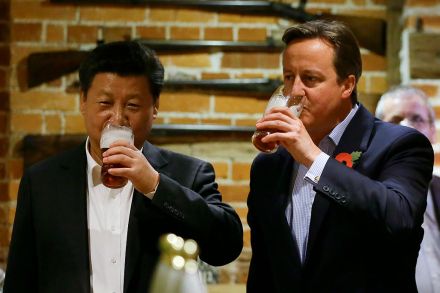The trouble with David Cameron’s China links
In the years following his resignation as prime minister, David Cameron appeared to become the poster child for elite capture by the Chinese Communist party. This is a term used to describe the process by which the CCP co-opts former officials and business people, usually through lucrative jobs and contracts with CCP-linked entities. Usually the officials have retired, or at least are beyond their best-by date, but still deemed useful for extending CCP legitimacy and influence. Rarely – like the reminted Lord Cameron of Chipping Norton – do they return to positions of considerable political power, dealing with the very government that helped keep them in comfort over recent years. That is





















